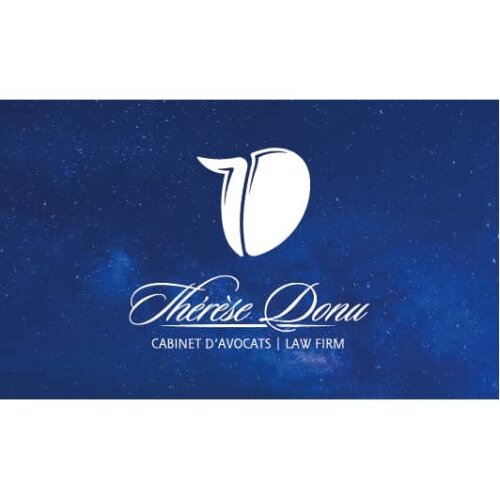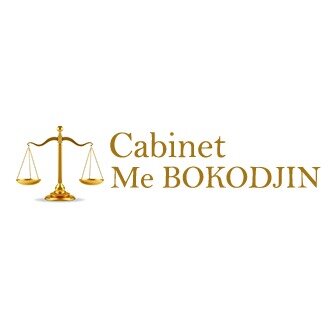Best Renewable & Alternative Energy Lawyers in Lomé
Share your needs with us, get contacted by law firms.
Free. Takes 2 min.
List of the best lawyers in Lomé, Togo
About Renewable & Alternative Energy Law in Lomé, Togo
Lomé, the capital city of Togo, is steadily embracing renewable and alternative energy as part of its national strategy to promote sustainable development and reduce dependence on imported fossil fuels. The Togolese government, with support from international partners, has prioritized expanding access to clean energy sources such as solar, wind, hydro, and bioenergy. These efforts are supported by targeted policies, regulatory frameworks, and incentives designed to attract investment and ensure environmental protection.
Renewable and alternative energy law in Lomé covers various aspects, including project development, licensing, environmental compliance, grid integration, and consumer protection. Legal frameworks regulate who can produce, distribute, and sell renewable energy, the standards projects must meet, and how public and private stakeholders interact within the sector. Understanding these laws is key for investors, businesses, property owners, and individuals seeking to participate in Togo's growing energy transition.
Why You May Need a Lawyer
Engaging in renewable and alternative energy projects in Lomé can be complex due to intersecting legal requirements. Here are common situations where legal assistance is valuable:
- Setting up a renewable energy business, such as a solar or wind farm
- Negotiating contracts for the purchase or sale of energy or equipment
- Securing government permits, licenses, and incentives for energy projects
- Complying with environmental and land use regulations
- Resolving disputes over land rights, grid access, or power purchase agreements
- Understanding tariffs, import duties, and tax benefits for renewable energy
- Ensuring consumer rights when installing home or commercial renewable systems
- Navigating joint venture agreements with local or foreign partners
A lawyer familiar with Togo's energy sector ensures your project is legally sound, reduces risks, and helps you make informed decisions.
Local Laws Overview
Togo's regulatory approach to renewable and alternative energy projects is shaped by local, national, and sometimes regional (ECOWAS) frameworks. Key legal aspects include:
- Investment Codes: Togo offers incentives for investment in renewables, including exemptions on import duties and corporate tax holidays under specific conditions.
- Energy Law: The government controls the generation, transmission, and distribution of electricity through entities like the Compagnie Energie Electrique du Togo (CEET), but the sector is open for private participation, especially in renewables.
- Licensing and Permits: Projects must secure multiple permits, including environmental assessment approvals, construction permits, and sometimes community consent.
- Environmental Regulations: Projects must comply with environmental impact assessment (EIA) processes, managed by the Ministry of Environment and Forest Resources.
- Land Use: Acquiring land for energy projects involves understanding both statutory and customary land tenure systems.
- Tariffs and Grid Access: The rules for connecting projects to the national grid and the tariffs applicable are regulated by independent agencies.
Staying up to date with these laws is vital as reforms frequently occur to attract investment and align with international best practices.
Frequently Asked Questions
What types of renewable energy are most common in Lomé?
Solar energy is the most widely deployed renewable source in Lomé, followed by smaller initiatives in wind and biomass. The climate and abundant sunlight make solar particularly attractive.
Do I need a license to build a solar power plant in Lomé?
Yes, you generally need several permits and licenses including environmental clearance, building permits, and project approval from the relevant energy authorities.
Are there government incentives for installing solar panels at my home or business?
There are periodic incentives and exemption programs, which may include reduced import duties on equipment and support through government or donor-backed programs.
How do land rights issues affect renewable energy projects?
Land acquisition can be complex due to overlapping statutory and traditional land rights. Clear contracts and community consultation are critical before starting any energy project.
Can foreign investors participate in renewable energy projects in Lomé?
Yes, foreign investment is encouraged, particularly in renewable energy. However, compliance with local company registration laws and sector-specific regulations is essential.
Is an environmental impact assessment required for every renewable energy project?
Most medium and large-scale projects require an environmental impact assessment as part of the permitting process. Small-scale systems for private use are often exempt.
What legal risks should I consider in energy project development?
Risks include contract disputes, regulatory changes, land acquisition challenges, non-compliance penalties, and potential delays in permitting.
How is electricity from renewable sources integrated into the national grid?
Grid integration is managed by CEET and typically requires compliance with technical standards, contractual agreements, and payment of relevant fees.
How can I resolve disputes related to renewable energy contracts?
Disputes can be resolved through negotiation, mediation, or by seeking recourse through Togolese courts or arbitration, depending on contract terms.
Are there consumer protections for buyers of solar equipment in Lomé?
Some regulations require that renewable energy equipment meets certain standards and that consumers are informed about warranties and after-sales services.
Additional Resources
For more information or support on renewable and alternative energy issues in Lomé, the following organizations and agencies may be helpful:
- Ministry of Mines and Energy (Ministère des Mines et de l’Energie)
- Togo Agency for Rural Electrification and Renewable Energy (AT2ER)
- Ministry of Environment and Forest Resources (Ministère de l’Environnement et des Ressources Forestières)
- Compagnie Energie Electrique du Togo (CEET)
- Chamber of Commerce and Industry of Togo (CCIT)
- Local bar associations and law firms specializing in energy law
- Development partners such as the African Development Bank and World Bank energy programs
Next Steps
If you are considering renewable or alternative energy investment, project development, or require assistance with compliance or dispute resolution in Lomé, Togo, here is how to proceed:
- Identify your project or legal needs (e.g., licensing, contracts, land, investment structure)
- Consult official sources or agencies for sector-specific requirements and updates
- Engage a local lawyer experienced in energy law to advise you on regulations, documentation, and negotiations
- Prepare necessary documents with professional legal assistance to ensure compliance
- Seek community and stakeholder engagement to address social and environmental concerns early
- Stay informed about policy changes or new incentives in Togo’s renewable energy sector
Taking these steps can help navigate the legal landscape with confidence and increase the likelihood of success for your renewable or alternative energy endeavors in Lomé.
Lawzana helps you find the best lawyers and law firms in Lomé through a curated and pre-screened list of qualified legal professionals. Our platform offers rankings and detailed profiles of attorneys and law firms, allowing you to compare based on practice areas, including Renewable & Alternative Energy, experience, and client feedback.
Each profile includes a description of the firm's areas of practice, client reviews, team members and partners, year of establishment, spoken languages, office locations, contact information, social media presence, and any published articles or resources. Most firms on our platform speak English and are experienced in both local and international legal matters.
Get a quote from top-rated law firms in Lomé, Togo — quickly, securely, and without unnecessary hassle.
Disclaimer:
The information provided on this page is for general informational purposes only and does not constitute legal advice. While we strive to ensure the accuracy and relevance of the content, legal information may change over time, and interpretations of the law can vary. You should always consult with a qualified legal professional for advice specific to your situation.
We disclaim all liability for actions taken or not taken based on the content of this page. If you believe any information is incorrect or outdated, please contact us, and we will review and update it where appropriate.











